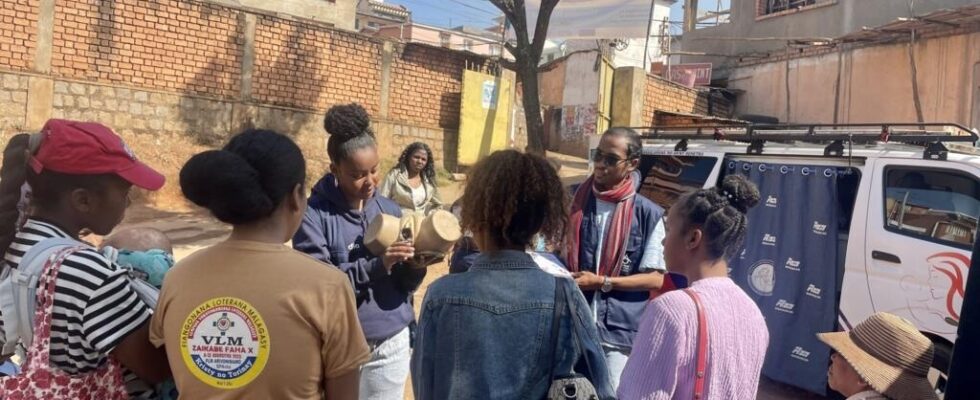In Madagascar, associations organized a conference on gynecological and obstetric violence in Antananarivo on July 29, 2024. For those involved in the fight against this violence, the priority is still to free up speech on this type of abuse that is still commonplace.
2 min
With our correspondent in Antananarivo, Pauline Le Troquier
HAS Madagascarthese are the beginnings of a fight against gynecological and obstetric violence. As in many countries, this type of abuse is still trivialized. Violence often takes place in the privacy of the examination room and delivery rooms. A few voices, particularly from the medical profession, are just being raised to lift the veil and raise women’s awareness of this reality. This was the subject of a conference organized on July 29, 2024 in Antananarivo by associations working for women’s sexual health.
The trivialization of pain and abdominal pressure during childbirth: this is a first in the country, because words are being spoken that morning about forms of gynecological or obstetric violence, physical or verbal, often ignored by those who suffer them.
In the audience, however, there are women who recognize themselves in these situations described, like Angela, 36 years old. Before that day, she had never dared to use the term violence to describe her experience. I recognized myself in everything that was said here.she explains. All the sentences that were said “It’s normal to have pain during childbirth, everyone has had pain here, you don’t need to have an epidural. An episiotomy is a trivial procedure so that the baby comes out unharmed…“, that’s not true. In my case, my baby weighed 2.5 kilos and [le recours à l’épisiotomie] was not justified “.
” In Madagascar, there are 0.3 midwives or nurses per 1,000 inhabitants. »
The use of episiotomy, systematic at the time of childbirth, but no less risky and traumatic, is one of the common manifestations of this type of violence. Claire Bertin, from Douleurs sans frontières, the NGO behind this awareness campaign, highlights the flaws in the medical world that encourage this abuse.
” In Madagascar, there are 0.3 midwives or nurses for every 1 000 inhabitantsshe says. So, we are dealing with human resources that are not sufficient and we need to strengthen that. To be able to put a patient at the center of care, you need to have time. You need to listen. To listen, you must not be in a constant state of emergency. »
Until now absent from debates related to women’s sexual health, the subject is only just emerging in the country. For those involved in the fight against this violence, the priority is still the liberation of speech, the first step before rethinking practices and humanizing care within the medical world.
